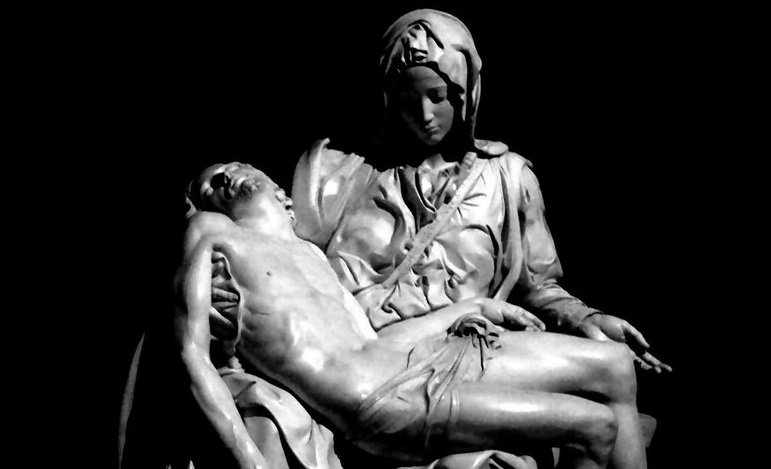
There are so many temptations to keep writing my dissertation uninterrupted instead of blogging, but how can I give into them if someone on the internet is WRONG?!
Ascesis calls.
Ascesis: Pierre Hadot will tell you that Philosophy is a Way of Life. Following him, in a recent book, Jean-Yves Lacoste tells you that spiritual exercises (changing your life) have always been at the heart of philosophy. If I ever get around to pitching his books, which I’ve translated, you’ll hear Dariusz Karlowicz telling you the same instead of reading excerpts here.
Neil deGrasse Tyson (henceforth “NDGT“) has made plenty of mistakes you’d expect from a science geek who wades into writing a humanities essay thinking his pocket protector and calculator and Wikipedia will help him write something intelligent.
These folks are a joy to grade, lemme tell ya!
[This doesn’t pertain to all my science students. There are some notable exceptions. I wish I could give you an honor roll.]
Damon Linker reports NDGT’s latest sin against the life of the mind is epic, but in line with what I’ve experienced grading:
“Behold the spectacle of an otherwise intelligent man and gifted teacher sounding every bit as anti-intellectual as a corporate middle manager or used-car salesman. He proudly proclaims his irritation with ‘asking deep questions’ that lead to a ‘pointless delay in your progress’ in tackling ‘this whole big world of unknowns out there.’ When a scientist encounters someone inclined to think philosophically, his response should be to say, ‘I’m moving on, I’m leaving you behind, and you can’t even cross the street because you’re distracted by deep questions you’ve asked of yourself. I don’t have time for that.'”
Apparently the clip where NDGT makes this thoughtless comment has proven embarrassing enough that the link is dead (UPDATE: I’m told it now lives again. What science could have predicted that resurrection?).
As luck would have it, I recently read a really fascinating book on the subject of thinking, theology, philosophy, and (thoughtless) science. In From Theology to Theological Thinking Jean-Yves Lacoste comments on Heidegger’s pithy statement from What is Called Thinking? :
“Science does not think.”
I know, I know, you’re probably thinking that Heidegger does not think, but even a blind hog gets an acorn every once in a while… Anyway, here’s Lacoste throwing an acorn to the blind German hog. It sheds light on what science really does:
“In Heidegger, science is defined by a work, the mathematization of being in its totality, as such alone capable of making verification, control, and prediction reign. This, and only this, is science. Again, its work is ‘mental’: who would deny it? This work is equally heuristic. Science, not content merely to master, also does the work of discovery. But once these first truths are conceded, that which Heidegger’s formula tells us is still poorly understood. Science lives out of an ambition and a capacity: to structure mathematically everything that is. But, we ask, is this all there is to do in order to get to know the totality of being? The shortest phenomenological description (and, no doubt, descriptions other than the phenomenological) allows us to respond negatively. Not only is there a reality that is not mathematizable, or of which we would lose the exact sense if we want to submit it to mathematization, but also what we cannot mathematize is perhaps the most important.”

Lacoste does not take the easy way out, as Jean-Luc Marion does in his achingly beautiful The Erotic Phenomenon, by talking about love. No, Lacoste instead gives you a striking example from the history of art:
“It is possible to articulate the Pietà of Michelangelo through equations. But having done this, we have rendered an account not of a work of art but of an object analogous to every other object. We have performed a mental work, just as the scientist specializing in meteorology performs a mental work… However the scientist describes in order to predict. To describe the statue mathematically, on the other hand, has no other end in sight than to demonstrate our mathematical competency–and the statue is merely the occasion to demonstrate it.”
Sounds a little masturbatory, doesn’t it? Math, doing math, for the sake of math. But between all the button pushing we miss the bust, or rather the statue, for the equation.
I don’t have time for that, because, as Wittgenstein famously said:
“We feel that even when all possible scientific questions have been answered, the problems of life remain completely untouched.”
So much for scientific imperialism, or what’s called scientism. What remains is forging my life by returning to my dissertation on Milosz.
Ain’t no calculator, ain’t no scientist, that’ll do that for me!
Meanwhile, you can amuse yourself with this 8-bit presentation of why Nietzsche thought science has always had a secret crush on theology. You don’t have to buy everything the atheist Nietzsche says, but there’s no reason why we can’t learn something new about theology from atheists. Beyond that, philosophy and theology have more than a crush on each other, they have a secret kinship, because much of what we consider to be the sole property of religion actually originated in philosophy, for example, practices of prayer.















